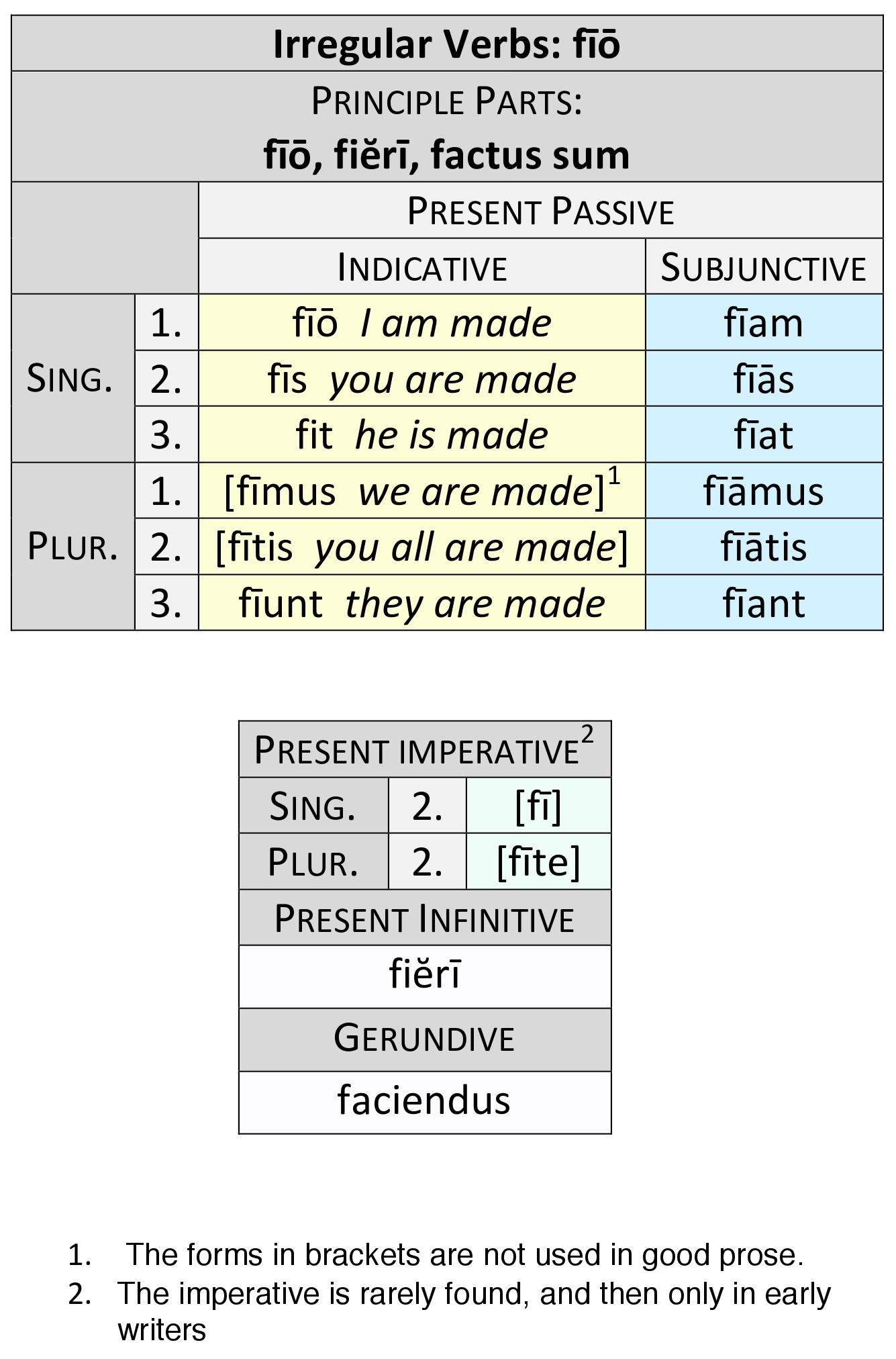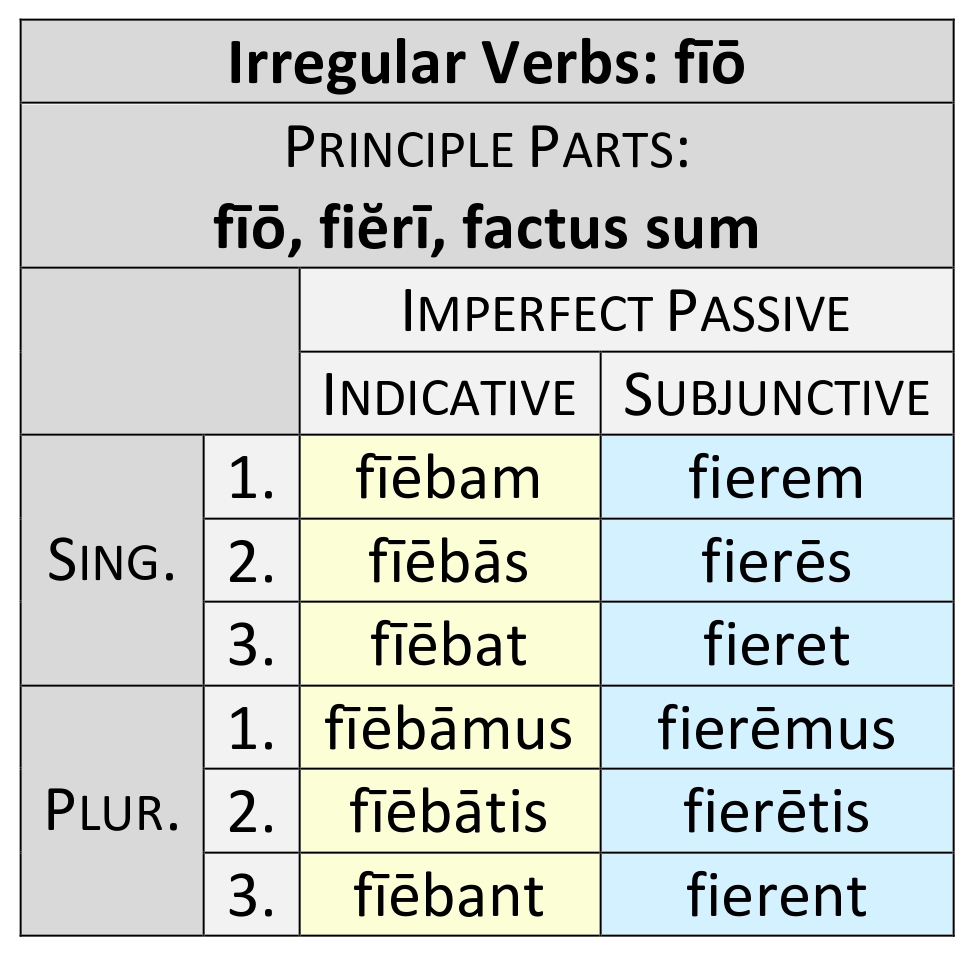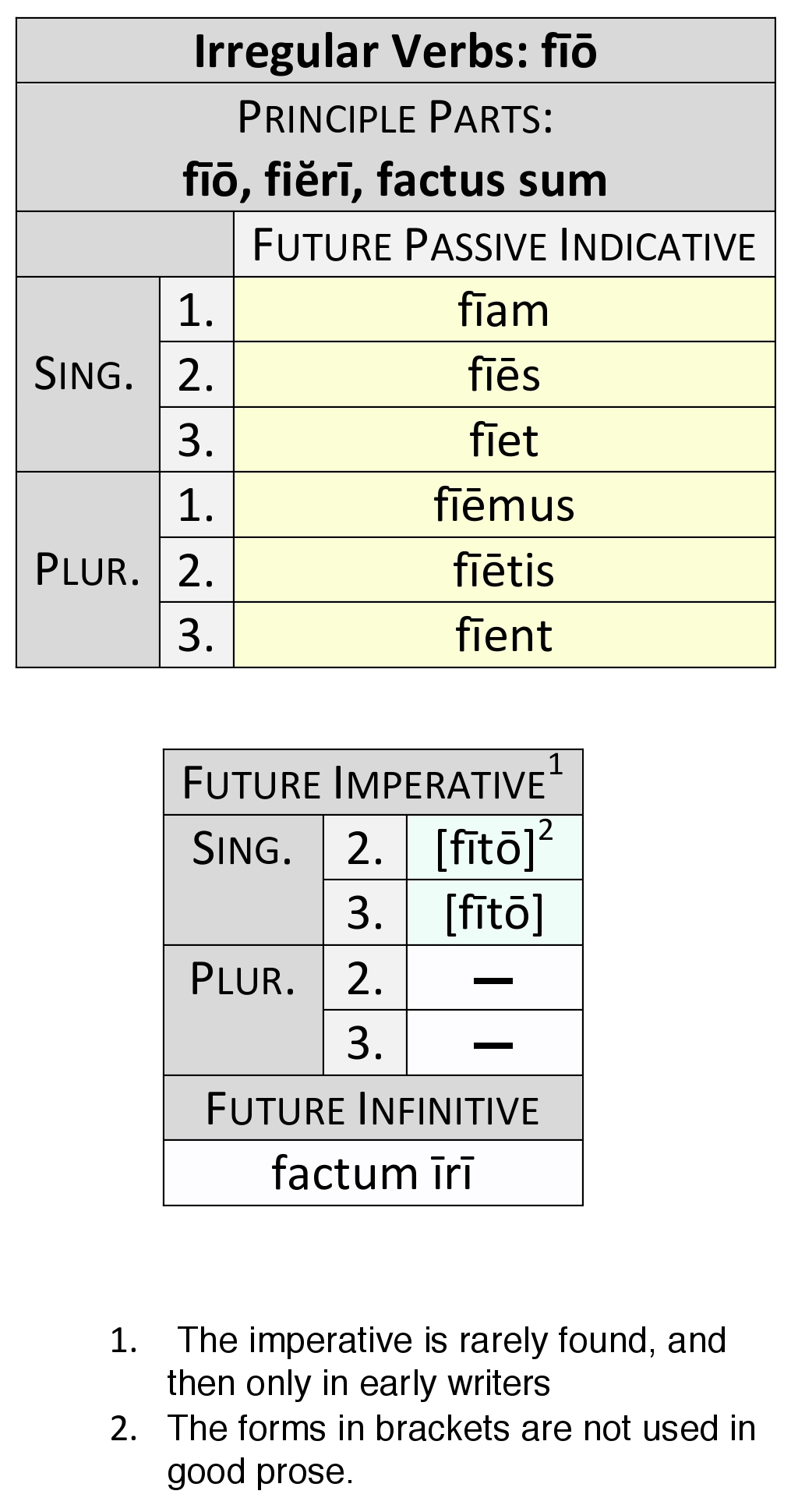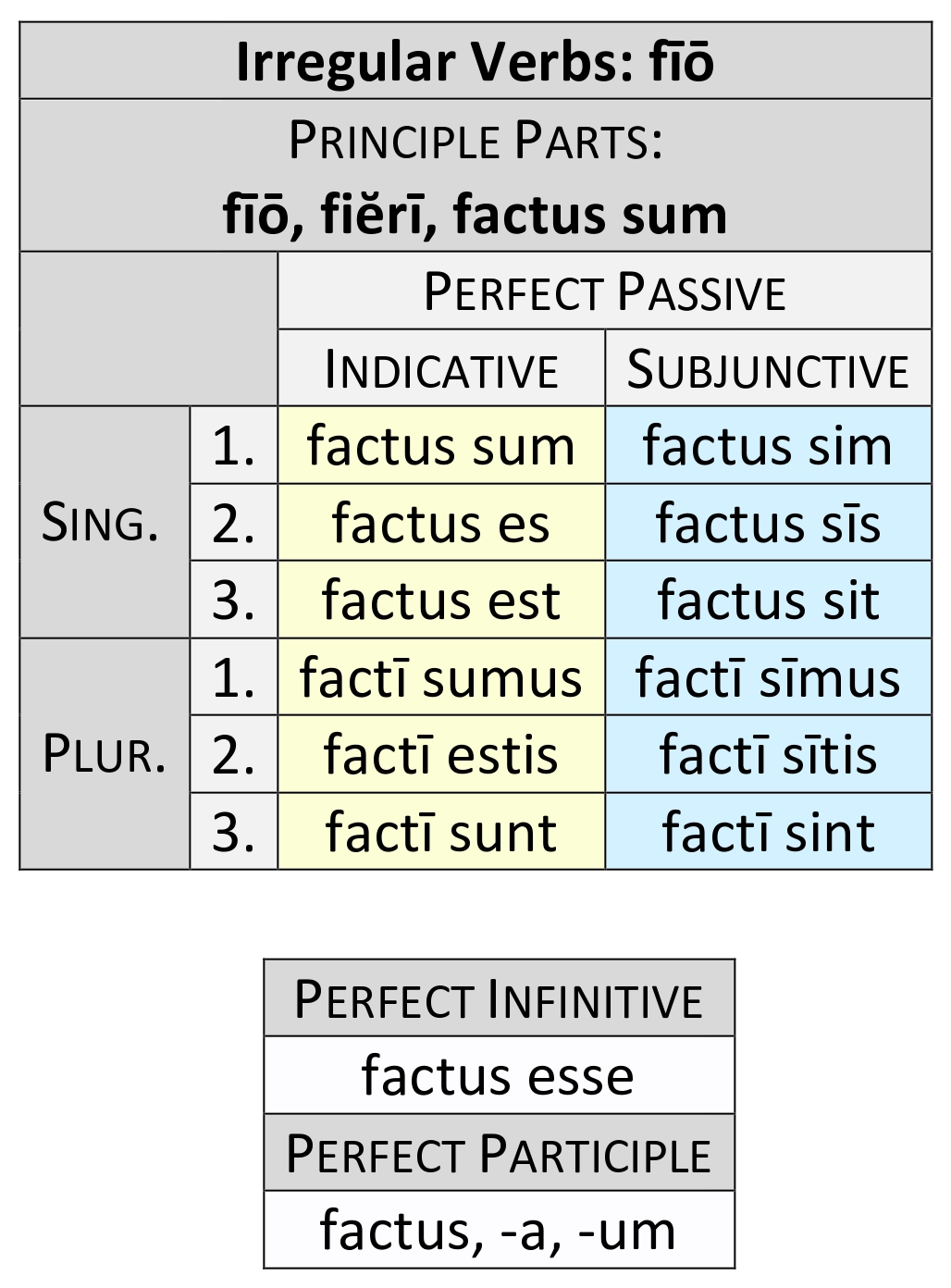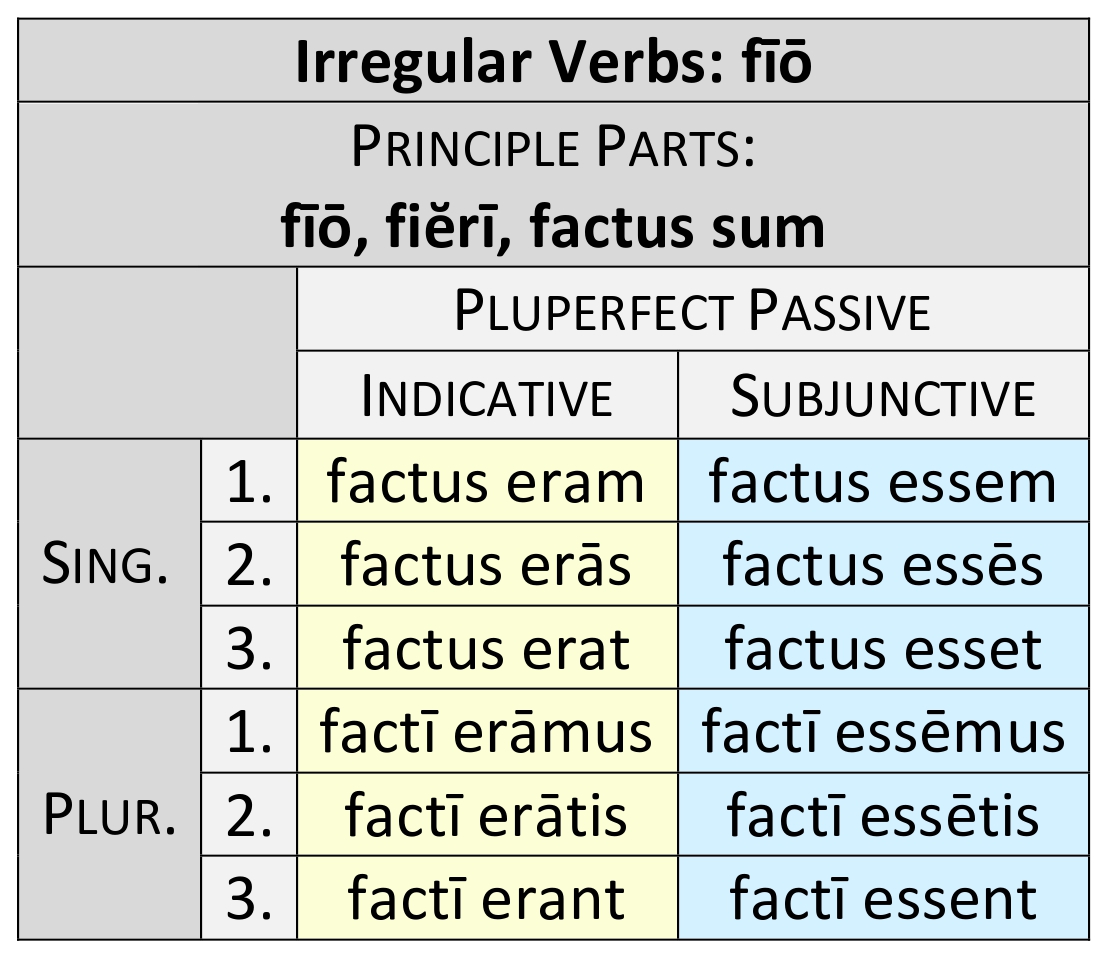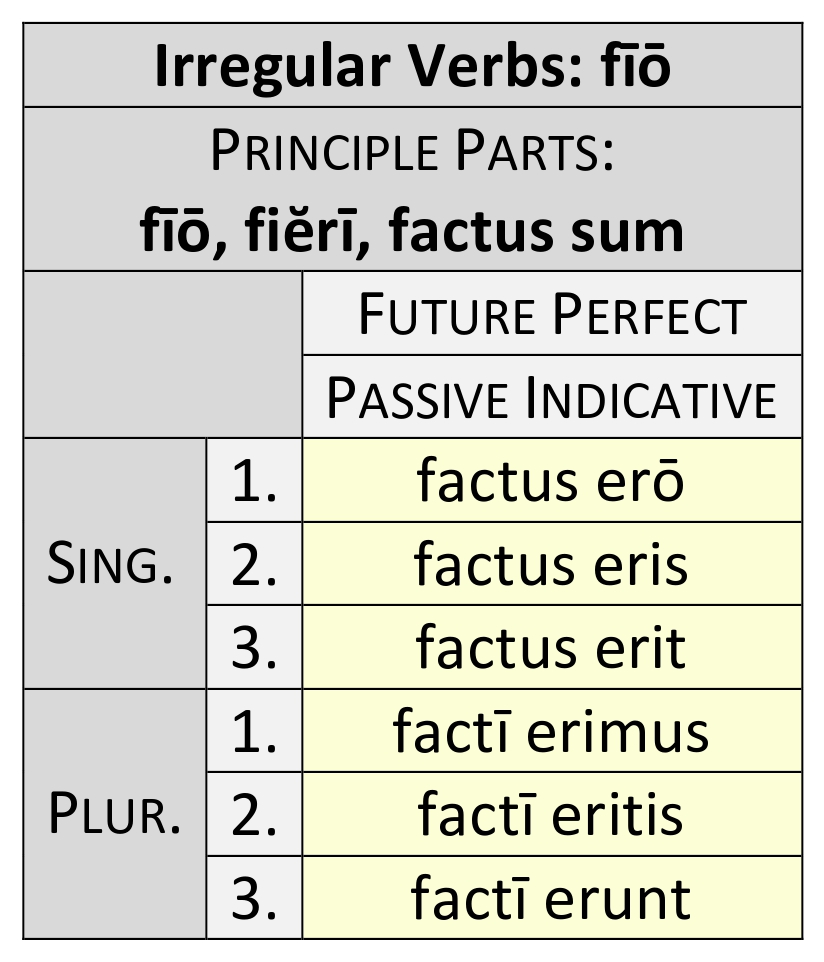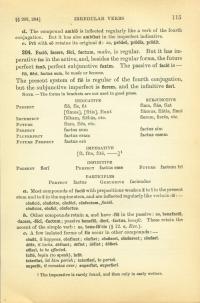204. Faciō, facere, fēcī, factum (make), is regular. But it has the Imperative fac in the active, and, in addition to the regular forms, the future perfect form faxō, and the perfect subjunctive form faxim. The passive of faciō is fīō, fiĕrī, factus sum (be made or become).
The present system of fīō follows the regular 4th conjugation, but the subjunctive imperfect is fierem, and the Infinitive fierī.
a. Most compounds of faciō with prepositions weaken ă to ĭ in the present stem and to ĕ in the supine stem, and are inflected regularly like verbs in -iō.
cōnficiō, cōnficĕre, cōnfēcī, cōnfectum
cōnficior, cōnficī, cōnfectus (finish)
b. Other compounds retain a, and have -fīō in the passive.
benefaciō, -facere, -fēcī, -factum
benefīō, -fierī, -factus (benefit)
These retain the accent of the simple verb: bene-fă'cis (§ 12.a, Exceptions).
c. A few isolated forms of fīo occur in other compounds.
cōnfit [it happens], cōnfīunt; cōnfīat; cōnfieret, cōnfierent; cōnfierī
dēfit [it lacks], dēfīunt; dēfīet; dēfīat; dēfierī
effierī [to be effected]
īnfīō [begin (to speak)], īnfit
interfīat [let him perish]; interfierī to perish
superfit [it remains over]; superfīat, superfierī

